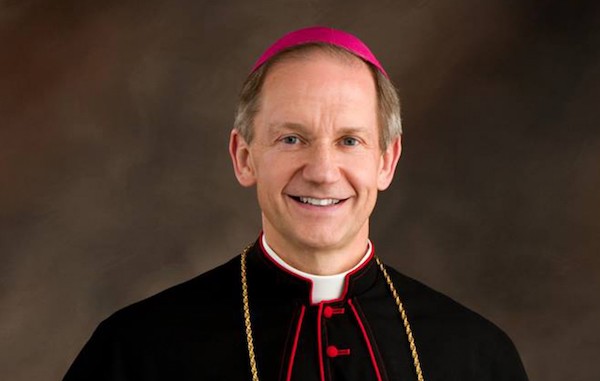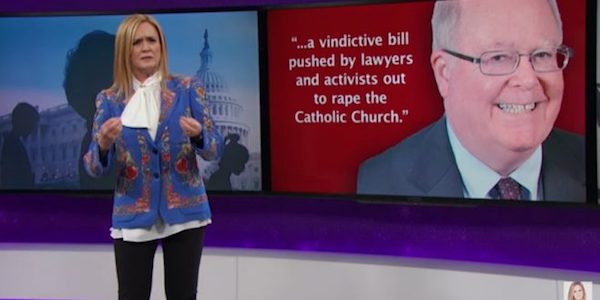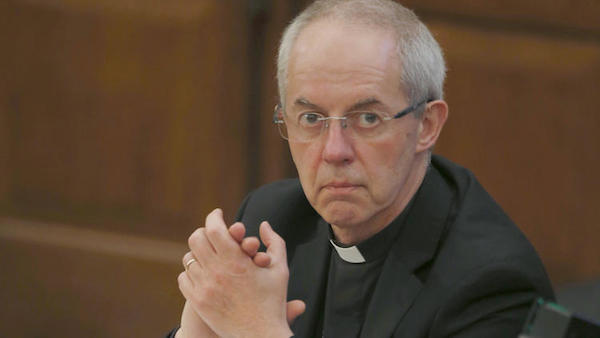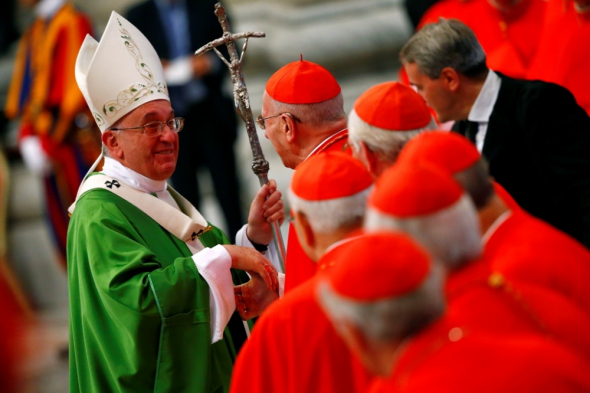
The bishop of the Catholic Diocese of Springfield, Ill., is calling on priests there to deny Holy Communion and even funeral rites to people in same-sex unions unless they show “some signs of repentance” for their relationships before death.
The decree by Bishop Thomas Paprocki also said that people “living publicly” in same-sex marriages may not receive the sacrament of confirmation or be admitted to the Rite of Christian Initiation of Adults, a process by which many converts become Catholic, preparing them for baptism and confirmation.
At the same time, Paprocki said that children living with a Catholic parent or parents in a same-sex marriage may be baptized. But when it comes to same-sex unions, priests cannot bless couples, church property cannot be used for ceremonies and diocesan employees are forbidden from participating, the decree said.
The bishop’s decree has not yet been made public by the diocese, but was sent to clergy and diocesan staff in an email last week. That email, in turn, was shared with other clergy around the country, as well as Catholic LGBT organizations, which posted the document and condemned it as unduly harsh, particularly in light of Pope Francis’s more compassionate posture.
“Although some other bishops and dioceses have instituted similar policies in part, this document is mean-spirited and hurtful in the extreme,” Christopher Pett, incoming president of DignityUSA, said in a news release by the organization that rallies the church for full inclusion of gay, lesbian, bisexual and transgender Catholics.
Although same-sex marriages have been legal across the United States since the Supreme Court’s 2015 ruling in Obergefell v. Hodges, the decree reiterates church teaching that marriage is a “covenant between one man and one woman.” The church’s official catechism states that “homosexual acts are intrinsically disordered.”
Four years ago, after gay marriage was legally recognized in Illinois, Paprocki “performed an exorcism in response to the law, suggesting politicians were ‘morally complicit’ in assisting the sins of same-sex couples,” the Chicago Tribune reported.
The 64-year-old bishop, trained as a lawyer as well as priest, has served the Springfield diocese since 2010. He was previously a priest and auxiliary bishop in the Archdiocese of Chicago, and is known for his passion for running and penchant for playing hockey.
In a statement provided to The Post, the bishop said of the decree: “These norms are necessary in light of changes in the law and in our culture regarding these issues.” The decree states:
Jesus Christ himself affirmed the privileged place of marriage in human and Christian society by raising it to the dignity of a sacrament. Consequently, the church not only has the authority, but the serious obligation to affirm its authentic teaching on marriage to preserve and foster the sacred value of the married state.
Last year, the pope released a 256-page document, “The Joy of Love,” which affirmed the church’s traditional views on marriage, as The Post reported. At the same time, the pope said unconventional unions are not without their “constructive elements.” He called on the church’s clergy to be pastoral and not to use doctrine as a weapon.
Other clergy have also embraced a more welcoming approach. Cardinal Joseph W. Tobin, the archbishop of Newark, recently welcomed dozens of gay and lesbian Catholics to worship. “I am Joseph your brother,” Tobin told the group, according to a New York Times report. “I am your brother, as a disciple of Jesus. I am your brother, as a sinner who finds mercy with the Lord.”
The Rev. James Martin’s latest book — “Building a Bridge: How the Catholic Church and the L.G.B.T. Community Can Enter Into a Relationship of Respect, Compassion and Sensitivity” — also calls for a gentler approach. Of the Paprocki decree, the noted Jesuit author, said in a pointed Facebook post:
If bishops ban members of same-sex marriages from receiving a Catholic funeral, they also have to be consistent. They must also ban divorced and remarried Catholics who have not received annulments, women who has or man who fathers a child out of wedlock, members of straight couples who are living together before marriage, and anyone using birth control. For those are all against church teaching as well. Moreover, they must ban anyone who does not care for the poor, or care for the environment, and anyone who supports torture, for those are church teachings too. More basically, they must ban people who are not loving, not forgiving and not merciful, for these represent the teachings of Jesus, the most fundamental of all church teachings. To focus only on LGBT people, without a similar focus on the moral and sexual behavior of straight people is, in the words of the Catechism, a “sign of unjust discrimination.”
Complete Article HERE!




